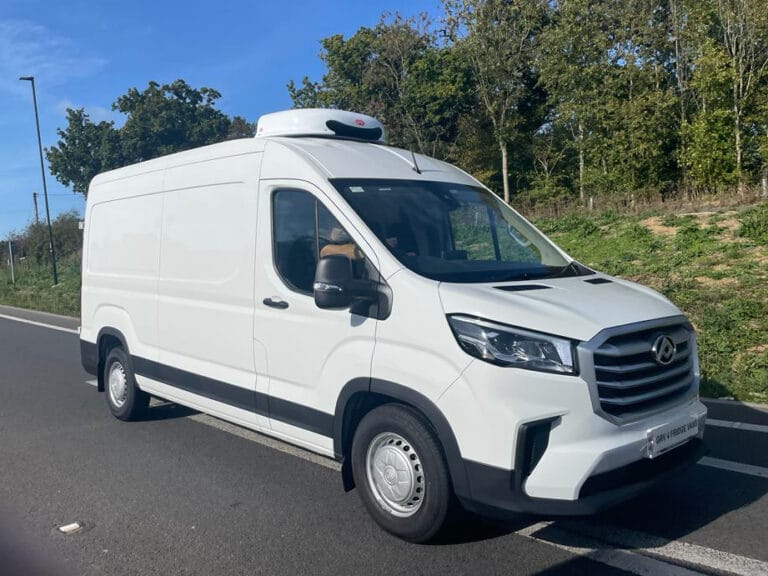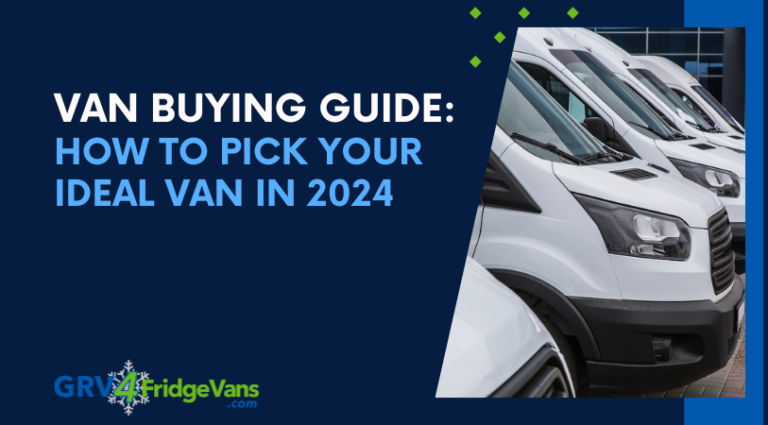If you’re thinking about making a van purchase in 2024, there are a few unique considerations that may be more important than in previous years. In 2024, we can expect to see greater emphasis on the importance of environmentally friendly choices. And with diesel vehicles set to be phased on in the coming years, the long-term impact of choosing a used diesel vehicle will be more significant than ever before.
Whether you’re a business owner looking for a reliable cargo van or a family in need of a spacious people carrier, choosing the right van is crucial. In this comprehensive guide, we’ll walk you through the essential factors to consider when picking your ideal van in 2024.
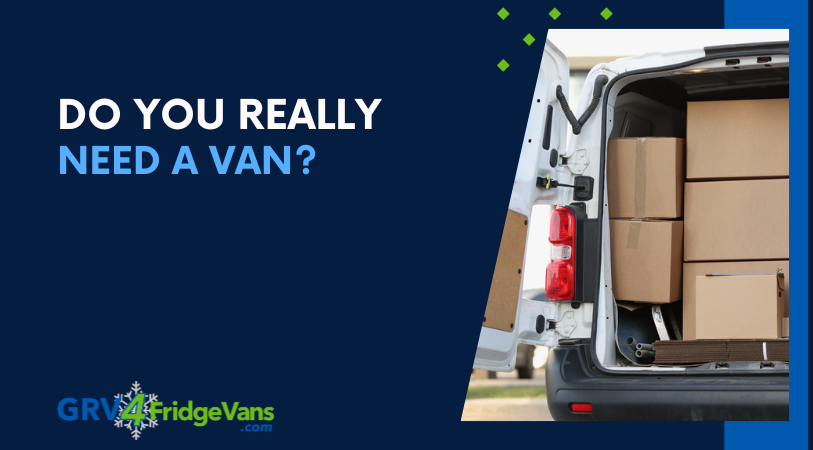
Do you really need a van?
The first question to ask is if you really need a van or if you can make things work with a car. You’ll typically need a van if you need to transport large or heavy items. You’ll also need a van if you’re transporting or storing perishables, such as meat and dairy. In this instance, a refrigerated van would be ideal.
For transporting people, you may be able to choose a people carrier style car, but your passengers will be more comfortable in a minibus. Vans are typically more expensive to purchase and you will likely need to take out business car insurance.
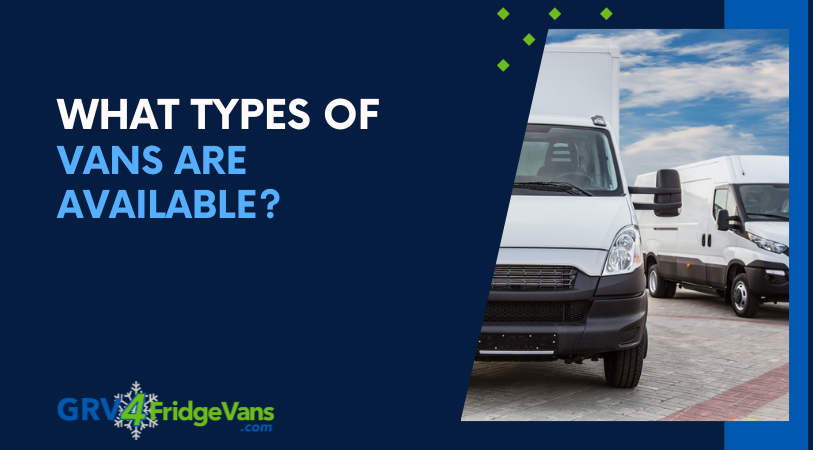
What types of vans are available?
While most people will have a very clear idea of what type of van they need, others might have more flexible needs that allow them to choose between a few different types of vehicles. In general, these are the types of vans you will need to consider:
Cargo Vans: These are primarily designed for transporting goods or equipment. They will have a large cargo area and minimal seats, usually between 2-3. Some vans will be converted.
Passenger Vans: These are ideal for transporting large groups of people. They will have multiple rows of seating and are designed for passenger comfort. They come in various sizes to accommodate different passenger capacities.
Panel Vans: Similar to cargo vans, these are used for transporting goods. They will usually have a closed-off cargo area in the back with little to no windows. They are most commonly used for businesses that require secure transportation of goods.
Refrigerated Vans: For businesses that need to transport food or perishables, a refrigerated van is essential. This type of van offers temperature control from ambient temperatures to deep freeze.
Camper Vans: These are designed for camping and outdoor adventures, providing a mobile living space. They will often include sleeping quarters, kitchen facilities, and sometimes bathrooms. Camper vans are popular among travellers who want the convenience of a home on wheels.
Compact Vans: These smaller vans are designed for urban environments and smaller cargo or passenger needs. The smaller size makes it easier to use them in city areas. They are also suitable for businesses with lighter transportation needs or individuals who prefer a smaller van.
Electric Vans: This type of transportation is growing in popularity as an environmentally friendly choice. Electric vans are becoming more popular as sustainability and environmental concerns gain prominence.
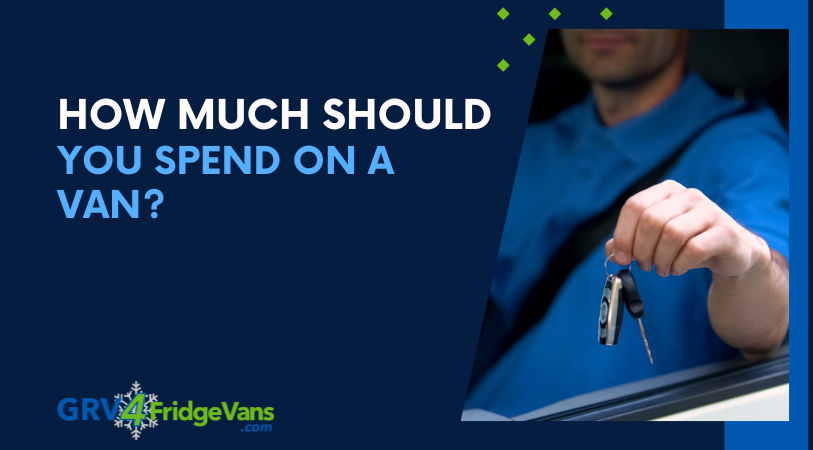
How much should you spend on a van?
When embarking on the journey to find your ideal van, one of the critical decisions you’ll face is whether to go for a brand-new model or consider a used one. Each option comes with its set of advantages and considerations that can significantly impact your buying experience.
Your budget will play a key role in determining which van you eventually purchase. You will have the option to buy a brand-new van, a used van, or lease a van. You could also use financing to purchase a new or used van.
Considering the lifetime cost and benefits of each option will be essential. Here are some of the pros and cons of purchasing both a new and a used van.
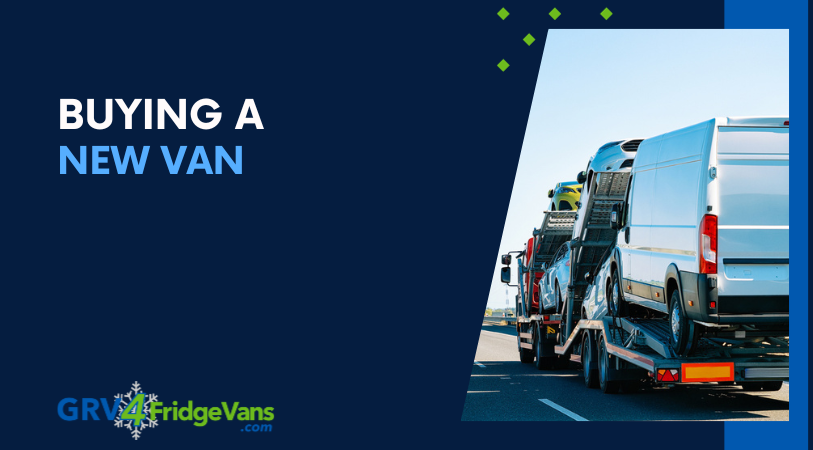
Buying a new van
Purchasing a new van means you’ll have access to the latest technological advancements, safety features, and comfort amenities. New vans also typically come with manufacturer warranties, providing peace of mind and financial protection against unexpected repairs during the initial years of ownership. And finally, you’ll have greater control over the customisation of your van.
However, a new van will come with a higher price tag compared to its used counterparts, which can put a strain on your budget. The value of a new van depreciates rapidly in the first few years, so if resale value is a primary concern, this can be a significant drawback. And finally, depending on the make and model, you may face limited availability or longer waiting times for a new van, especially if it’s a popular or newly released model.
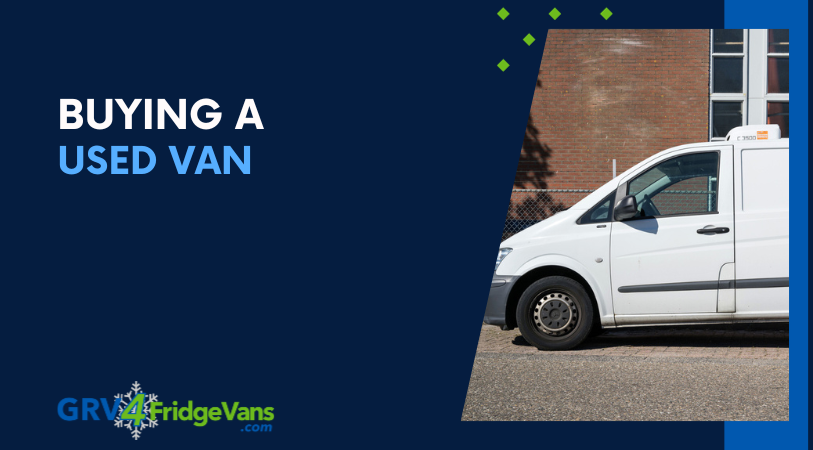
Buying a used van
One of the most significant advantages of buying used is the cost savings. Used vans often come at a lower price point, allowing you to get more features or opt for a higher-end model within your budget.
Used vans have already undergone the steepest part of their depreciation curve, offering more stability in terms of retained value over time. And finally, when buying used, you have a broader range of models and features to choose from, including vans that may no longer be in production.
There are some downsides to selecting a used van. Depending on the age and mileage of the used van, the original warranty may have expired, exposing you to potential repair costs.
It’s crucial to research the history of a used van, including accidents, maintenance records, and title status. Without a thorough inspection, there may be hidden issues. And finally, older models might lack the latest technological features and safety advancements found in newer vans.
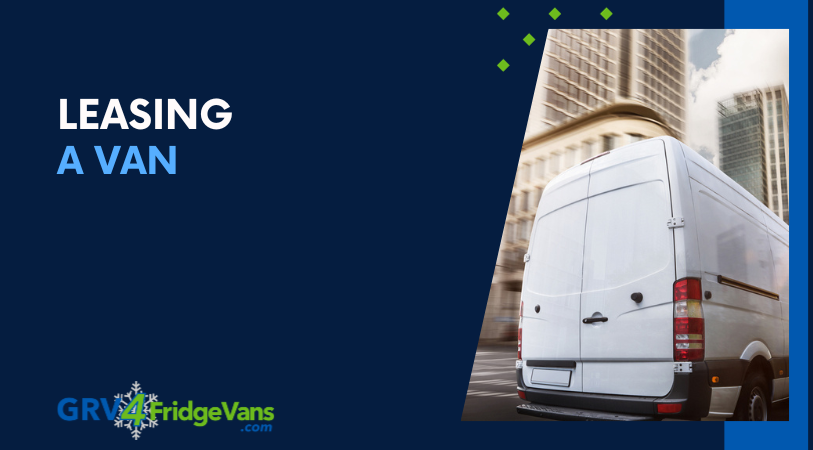
Leasing a van
With leasing options, you can enjoy all of the benefits of a brand-new van with none of the upfront costs. Leasing offers flexibility for business owners who want to access the van that is perfect for their needs without the associated cost. Instead of a lump sum, you’ll pay monthly to lease the van, usually as part of a lengthy contract. You may have to pay a deposit upfront to secure the lease.
While leasing does offer some benefits, you will never actually own the vehicle, so you won’t be able to sell it down the line. However, some businesses prefer this structure for tax purposes, so it’s worth exploring the options available to you.

Financing Options
You don’t have to part with a large sum of money upfront. Whether you are buying a new or a used car, you could benefit from choosing finance options to spread the cost. Remember that financing and leasing will have additional costs that you won’t face with a lump sum payment.
This could include arrangement fees and interest on lending. You could also face penalties if you are late or miss any payments. If you are operating as a limited company or partnership, you may be able to access tax benefits by choosing a business lease.
Before making a large purchase, always speak to your accountant to make sure you are getting the maximum tax benefit from your investment.
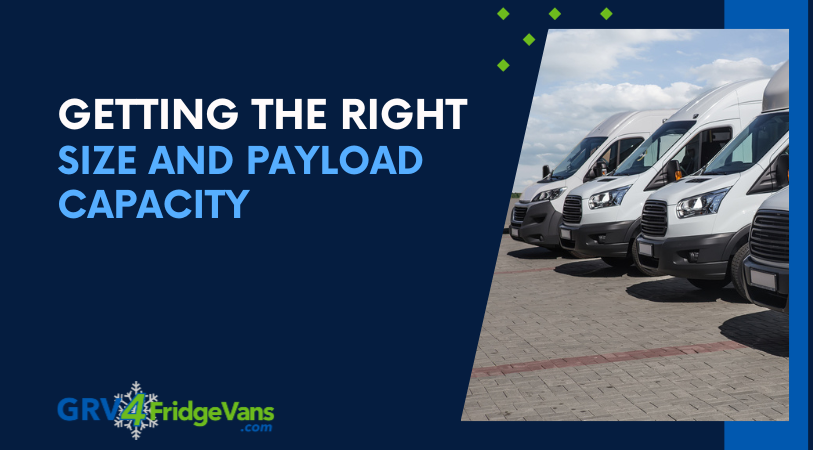
Getting the right size and payload capacity
When choosing a van for your business, you not only need to think about where you are now, but where you want to be a year from now. If you have plans for expansion, you don’t want to limit your growth by choosing a smaller van.
For example, imagine you are a florist in the early stages of growing your business. You could choose a small compact van because this would be easier to use in a busy city centre location, but as your business grows, you might find that you need more capacity and your compact van is no longer large enough.
Here are some things to consider to ensure you get the right-sized van:
- Does it have sufficient payload space and towing capacity for your current needs?
- Is the storage area flexible enough for your needs?
- If your company were to expand, would your van be flexible enough to grow with you?
- Do you have sufficient parking for your van?
If you’re not sure if you’re on the right track with your choice of van, ask around in your industry for recommendations. You can also look at what your competitors are doing to determine if you are making a selection that is comparable to them.
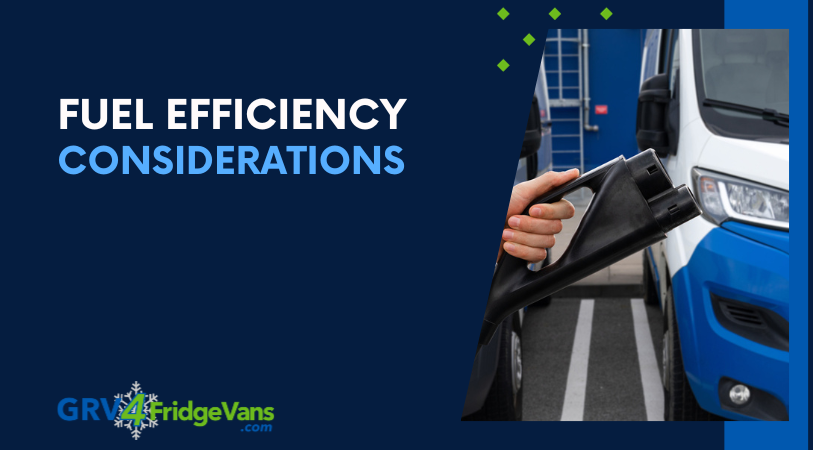
Fuel efficiency considerations
Fuel efficiency today is about more than just reducing your running costs. Many companies are also thinking about their wider environmental impact. And with new rules such as London’s ultra-low emissions zones (ULEZ) coming into play, this will also influence business decisions for many companies in the months and years to come.
Choosing an electric or hybrid vehicle will help to reduce your running costs by lowering your road tax and allowing you to avoid additional charges such as the ULEZ fee. However, electric vehicles are known to be more expensive to maintain, so this is something you will need to take into consideration.
If you choose to purchase a used van, bear in mind that some vehicle types have been earmarked to be phased out in coming years. So while you might be able to grab a great deal on a used van now, you might have to think about scrapping it further down the line as you will no longer be able to sell it.
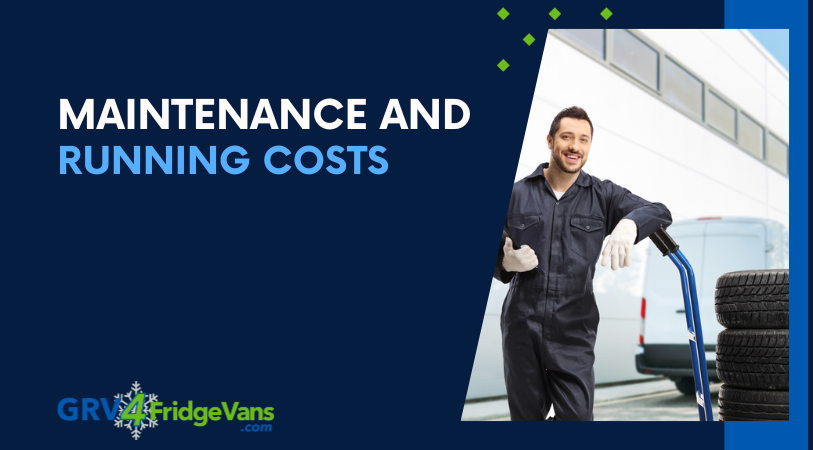
Maintenance and running costs
A more efficient vehicle will reduce your running costs, but this can come with an additional cost when it comes to servicing and repairs. Always research the average running cost of your chosen vehicle and bear in mind that costs will be higher when you have maximised the payload or if you are towing a trailer.
Maintenance costs are more difficult to predict as you can’t always tell when something is going to stop working. You can, however, research the reliability of your choice of van and learn more about how likely it is that you will face steep bills throughout the lifetime of your ownership.

The importance of a test drive
Many people want to rush into the decision and get driving, but it’s vital to arrange a test drive before you make your final decision. This essential step could help you identify any obvious issues with your choice of van that could make it unsuitable.
You should not only explore the road conditions in your van but also try loading it to determine if it is suitable for your needs. Check that the doors can be opened in a configuration that works for you and that you can easily access everything you need.
If you’ll be driving the van for long trips, pay attention to driver and passenger comfort. These things are often overlooked in favour of the overall performance of the vehicle, but you don’t want to be stuck with a van that is uncomfortable to drive.
Closing thoughts
If you’re on the verge of purchasing a van for 2024 and beyond, you have a lot of choices available to you. It’s important to take a slow and considerate approach rather than rushing into any big decisions.
You need to consider the type of van you need, and this will usually be determined by the size of van you need. Remember that you need to give your business room to grow, so don’t undersize your van just to save money.
You also need to consider the running costs and maintenance costs over the lifetime of the vehicle. While you can save money with efficient electric vehicles, these are more likely to cost more money in maintenance fees throughout the lifetime of the vehicle.
You can also choose between buying new, used or leasing your van. All of these have benefits and disadvantages that need to be considered. Once you have narrowed down your choice, it’s time to book a test drive to decide if this van is right for you.
